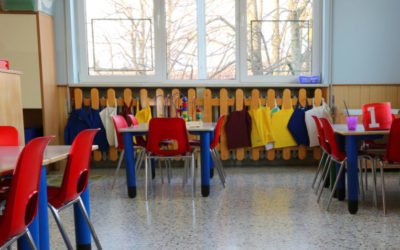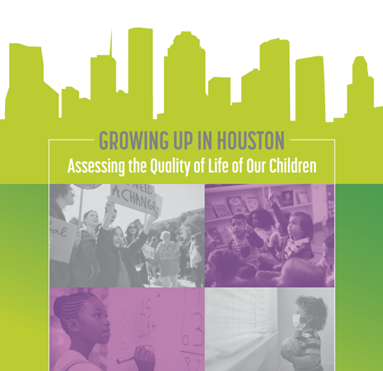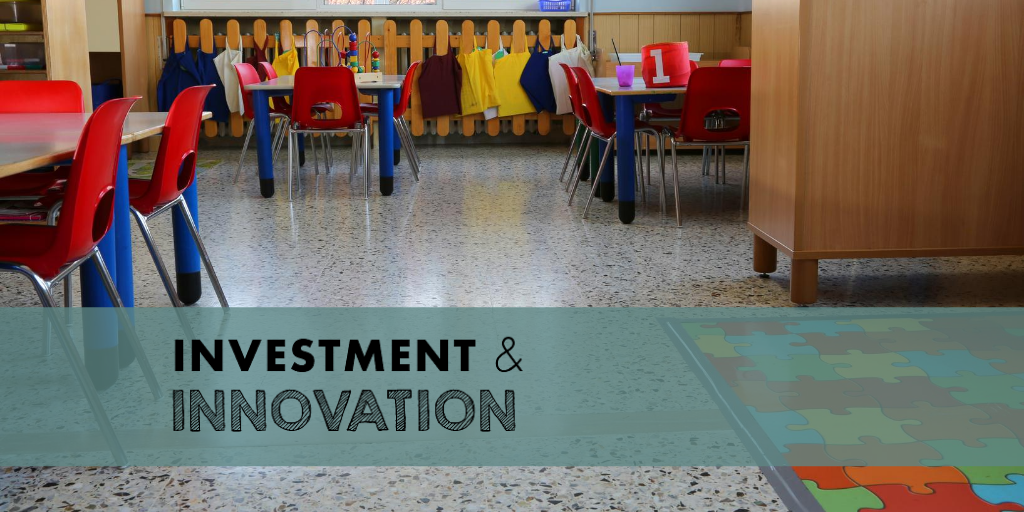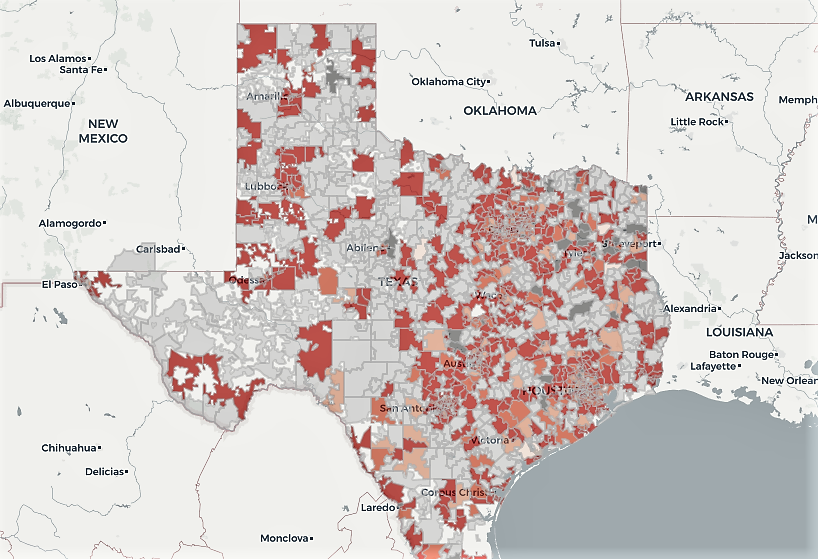Research & Data
PROMOTING DATA-DRIVEN PUBLIC POLICIES
The Center for Social Measurement and Evaluation (CSME) supports the research and evaluation efforts across all of
Children in Texas Public Schools
Economically Disadvantage Students in Texas Public Schools
children are in the emergent bilingual/English learner program
Center for Social Measurement and Evaluation
One in ten children in the U.S. is born in Texas. Providing 10% of our country’s population with a quality education is critically important to the future of our local, state, and national economies.
Primarily achieved through our Center for Social Measurement and Evaluation (CSME), CHILDREN AT RISK works to ensure all Texas children have access to quality education, so they have the skills necessary to thrive in our 21st-Century economy.
Through strategic partnerships, CHILDREN AT RISK researches trends, inequities, resources, and opportunities to improve public education. We use this research to educate policymakers and advocate for better education policies
The Center for Social Measurement and Evaluation (CSME) supports the research and evaluation efforts across all of CHILDREN AT RISK’s primary issue areas, centers, and policy initiatives. CSME produces data tools to empower individuals with the information they need to drive and inform policy change.
Data-Driven Community Advocacy Tools
CSME designs and disseminates data-based research tools including:
- Annual School Rankings
- School data for parents
- Early education data and interactive maps
Research & Evaluation
CSME assesses the impact of policies and programs, resulting in evaluations including:
- Nonprofit program evaluation
- Corporate social investment reports
- Community health needs assessments
- Fiscal evaluations
Publications
CSME produces research-oriented publications including:
- Growing Up in Houston
- Growing Up in North Texas
- The Journal of Applied Research on Children
- The Journal of Family Strengths
Our Latest Research & Data Analysis
Early Educator Survey – English
CHILDREN AT RISK is conducting an Early Educator Survey. We would love to hear from you about your current experience in the field. Responses will help develop and advocate for equitable policies that improve early childhood education for all children and educators in Texas.
Call for Papers: Child Firearm Injury & Domestic Violence
Children at Risk's Journal of Applied Research on Children and Journal of Family Strengths seek papers on two special issue topics: child firearm injury/safety and the impact of COVID-19 on domestic violence. Journal of Applied Research on Children Children at Risk...
C@R Hosts Roundtable with JFS Authors on Youth Suicide
Content Warning: Discussion of Suicide. If you or someone you know is struggling, help is available. Contact the National Suicide Prevention Lifeline: 1-800-273-TALK (8255) or visit suicidepreventionlifeline.org for 24 hour support. Even before the pandemic, youth...
COVID-19 Related Child Care Closures
Child care centers, already some of the most economically vulnerable businesses in Texas, provide an essential service to working families and critical early educaation for young children. Throughout the pandemic, permanent, temporary, and extended closures have left...
2021 Kroger School Food Rankings
Across Texas, over 3 million students from low-income households qualify for free or reduced-price school meals through federal programs, such as the National School Lunch Program and the School Breakfast Program. For many of these children, meals eaten at school are...
Chronic Absenteeism In Texas
Before the pandemic, Texas had a problem with chronic absenteeism in its schools. Statewide, chronic absenteeism averages at 12.5% pre-COVID and varies dramatically by region. More than 740,000 students missed at least one-tenth of their instruction in 2019. The...
Growing Up In Houston: Assessing the Quality of Life of Our Children
In partnership with the United Way of Greater Houston, JPMorgan Chase & Co., CHILDREN AT RISK is excited to share the 2021-2022 edition of Growing Up in Houston: Assessing the Quality of Life of Our Children. The goal of the GUIH project is three-fold: to provide...
Access to Affordable High-Quality Child Care is Scarce
By Kaeleigh Hernandez, Early Childhood Education and Sara Moran, Center for Social Measurement and Evaluation (Note: The analyses in this post uses data on child care centers from September 2019) Across Texas, nearly half of all child care providers accept subsidies...
Investment & Innovation: Increasing Access to Quality, Affordable Child Care Before & During a Crisis
Exposure to high-quality early childhood education (ECE) is the foundation for future academic success, especially for children from low-income families. Increasing access to subsidized child care is one of the many pathways that Texas is utilizing to provide...
Access to Affordable High-Quality Child Care is Scarce
By Kaeleigh Hernandez, Early Childhood Education and Sara Moran, Center for Social Measurement and Evaluation (Note: The analyses in this post uses data on child care centers from September 2019) Across Texas, nearly half of all child care providers accept subsidies...
Texas Child Care Desert Methodology
In recent years, the concept of food deserts - areas with little or no access to fresh foods - has been widely publicized and frequently studied. Borrowing from that concept, experts at Child Care Aware and Center for American Progress have coined the term “child care...
Subsidized Child Care System in Texas
Because money is often a critical barrier to accessing child care, Texas gives working families subsidies that can help them pay for child care. Where does the money for child care subsidies come from, where does it go, and who is left out? Here's a quick primer:...









